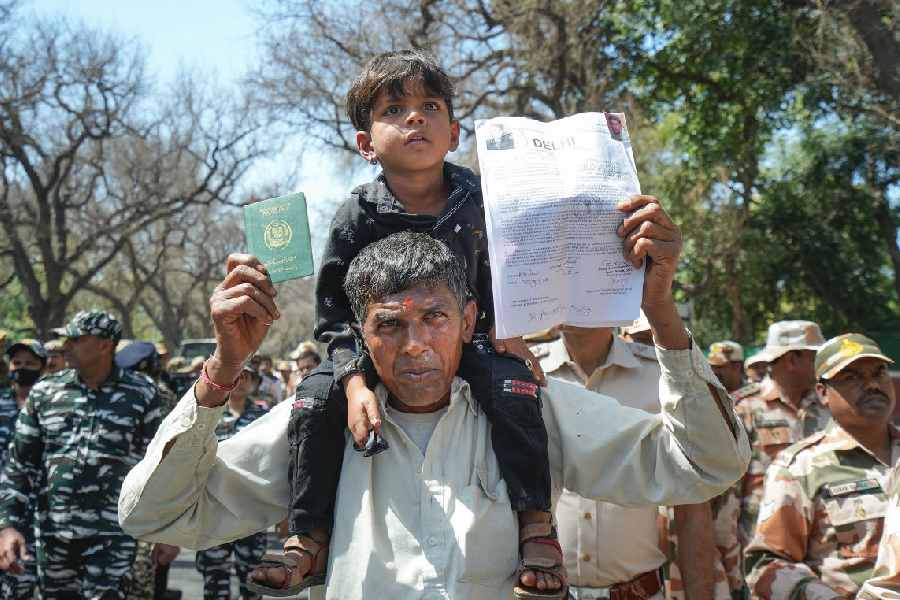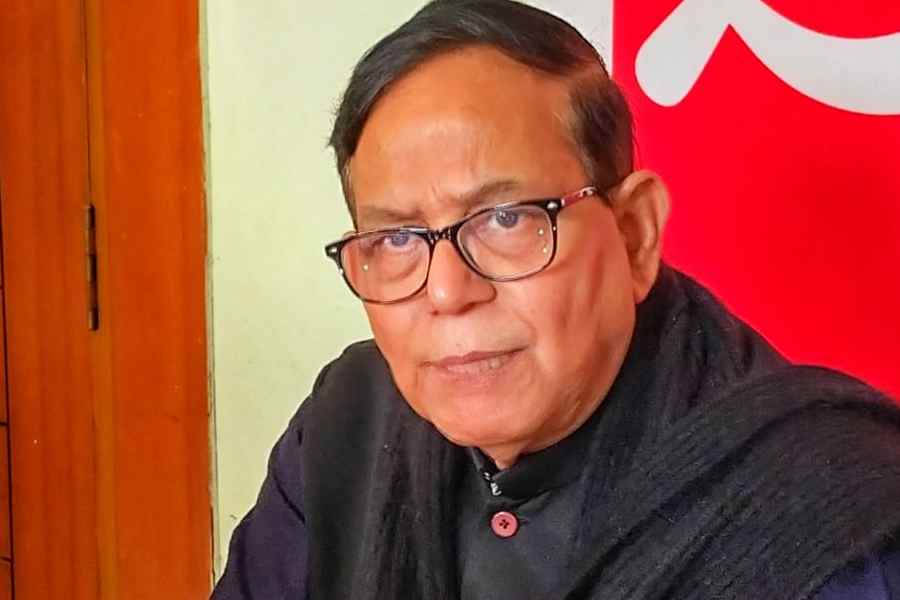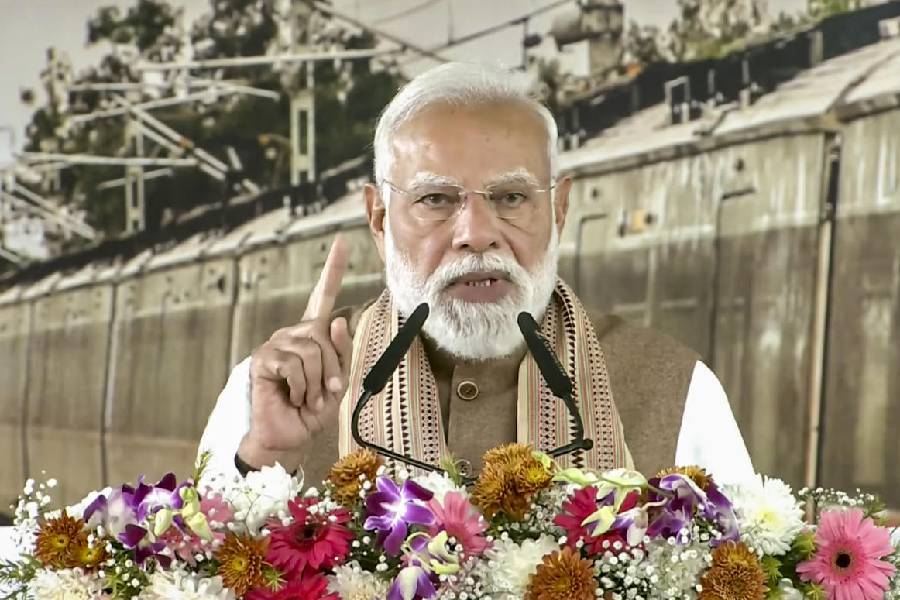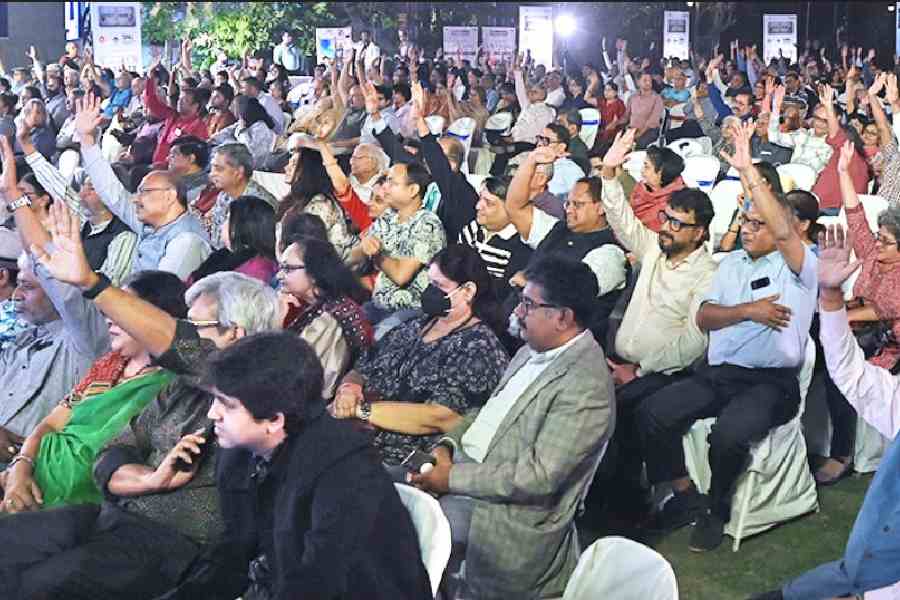The Union home ministry has announced that members of non-Muslim minority communities from Pakistan, Bangladesh and Afghanistan who came to India on or before December 31, 2024, to escape religious persecution will be allowed to stay in the country without passports or other travel documents.
The move drew allegations that the Narendra Modi government was reviving a polarising plank ahead of the Bengal and Assam polls scheduled next year. The Trinamool Congress, CPM and the Congress in Bengal accused the Modi government of trying to effect a demographic shift in the state.
The decision is a corollary of the controversial and allegedly divisive Citizenship (Amendment) Act (CAA), which came into force last year. The CAA fast-tracks Indian citizenship to persecuted minorities from Bangladesh, Pakistan and Afghanistan belonging to the Hindu, Sikh, Jain, Buddhist, Parsi and Christian communities who migrated to the country on or before December 31, 2014.
Sources said the order notified under the recently implemented Immigration and Foreigners Act, 2025, was expected to bring respite to thousands of refugees, particularly Hindus from Pakistan and Bangladesh, who entered India after 2014 and had been facing uncertainty regarding their legal status.
The order issued by the home ministry says that “a person belonging to a minority community in Afghanistan, Bangladesh and Pakistan — Hindus, Sikhs, Buddhists, Jains, Parsis and Christians — who were compelled to seek shelter in India due to religious persecution or fear of religious persecution and entered India on or before December 31, 2024, without valid documents, including passport or other travel documents, or with valid documents, including a passport or other travel documents, and the validity of such documents have expired” will be exempted from the rule of possessing a valid passport and visa.
Announcing the government’s order on X, BJP MP from Bengal and junior education minister Sukanta Majumdar had on Wednesday morning claimed that the home ministry “has extended the cut-off date (Dec 31, 2014) by 10 years for applying under CAA till 31st December 2024”.
However, the order only ensures that those who arrived after December 2014 and 2024 are not penalised for lacking travel documents or holding expired ones. The order is silent on the citizenship issue.
Later, Majumdar deleted his earlier post and said: “In a landmark decision, the Govt of India has allowed minorities from Afghanistan, Bangladesh & Pakistan — Hindu, Sikh, Buddhist, Jain, Parsi & Christian — who entered India on/ before 31st December 2024 due to religious persecution, to stay even without valid documents. A true step towards justice & humanity!”
Trinamool MP Saket Gokhale accused Majumdar of spreading fake news while referring to his earlier claim that the home ministry had extended by 10 years the cut-off date for applying for Indian citizenship under the CAA.
“The cut-off date under CAA remains 2014. Only an amendment brought in Parliament can change that & not Amit Shah. Will @PIBFactCheck dare to call this out? Now waiting for Modi minister @DrSukantaBJP to do what he does best — quietly delete his post without apologising.”
A former BSF director-general said the move was expected to bring electoral gain to the BJP ahead of next year’s Assembly polls in border states such as Bengal and Assam, where illegal immigration from Bangladesh had been used by the party as a polarising plank.
Speaking at an event organised by the Indian Council for Cultural Relations (ICCR) in Delhi later on Wednesday, Majumdar asserted that secularism and communism would survive in India only as long as Hindus remained in the majority and thanked Prime Minister Narendra Modi for bringing in the CAA.
The CAA had triggered widespread protests as many feared that, coupled with the planned countrywide National Register of Citizens (NRC), it would result in lakhs of Muslims losing their citizenship. Critics feel the polarising law violates the constitutional principle of secularism by excluding Muslims.
Following the passage of the law in Parliament, the country had witnessed widespread protests leading to the death of over 100 people in police firing and related violence.











